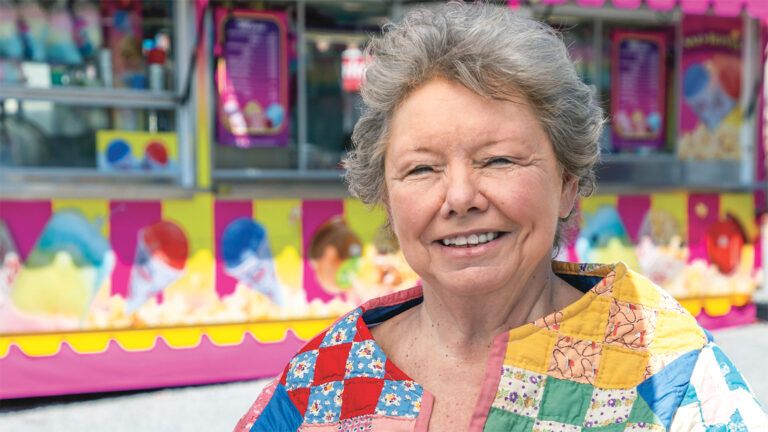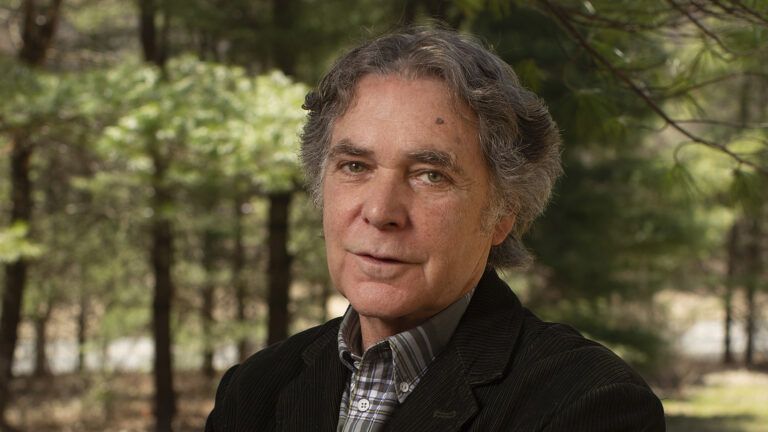Christmas 2003. An orphanage in the middle of war-torn Baghdad. I was standing by a courtyard play area, talking to one of the nuns who cared for the children about a nine-year-old boy named Ala’a I’d gotten to know—okay, come to love—since my National Guard unit had started visiting the orphanage a few months before.
Out of the blue, the nun said matter-of-factly, “A year from now we will have to move Ala’a to a government-run orphanage. He will be too big for us to care for him.”
Immediately I pictured Ala’a, so tiny I could wrap my thumb and forefinger around his leg. My stomach felt like I was about to go into combat. This orphanage was run by nuns from Mother Teresa’s Missionaries of Charity. It was an oasis of peace in a city of chaos. I knew about that government-run orphanage. It would be a death sentence for a boy like Ala’a, with cerebral palsy, no known relations and an American National Guard soldier for a best friend. I didn’t even think.
“Then I’ll adopt him,” I blurted out.
The nun looked at me, surprised. I was stunned too. What had I just said? Had I really offered to adopt a disabled child? From a war zone? I was a workaholic 30-year-old bachelor with a career back home in Wisconsin. A career I might not even make it home to.
Even if I did, what would I do with a nine-year-old? I didn’t know how to raise kids. I’d only graduated law school a few years before. I lived with my parents, commuting 75 miles each way to Madison, the state capital, where I was chief of staff for my hometown state legislator.
I remembered my first day at the orphanage when Ala’a had pulled himself across the floor with his hands, planted himself right in front of me and smiled the most electric smile I’d ever seen.
It didn’t take him long to start calling me Baba, Arabic for father. We’d sit and talk—he’d learned crisply accented English from the Indian nuns—walk around and play games in his wheelchair. Sometimes he’d tell me about his prayers. His favorite place in the orphanage was the sisters’ small, simple chapel. He prayed all the time, like he knew God was listening. Not like I prayed. Not like any grownup I knew prayed. How could I let him go?
And yet—how could I possibly take him?
The nun drifted away, and soon it was time to leave. I said goodbye and, that night, lay in my bunk, mind racing. Outside, sounds of Baghdad’s Green Zone—our military police unit was headquartered in a bombed-out former Baathist Party country club—hummed in the winter desert air. Had I just made a promise I couldn’t keep? I didn’t do that sort of thing. I’d been raised to honor my word.
And yet—already I could hear my mom, worrying that combat stress was pushing me over the edge. Dad, who’d been in Vietnam, would understand. He sometimes talked of the kids he’d wanted to rescue from his own war zone long ago. But he was also committed to my public-service career.
As committed as I was. I knew what he’d say: “Be very careful, son. You don’t know what you’re getting into.” Praying for guidance, for an answer, for something, I finally fell asleep.
By the time I saw Ala’a again the next week, I’d sent e-mails, telling friends and family what I planned to do. The responses read as expected. Take a little time to think this through, Mom suggested. Dad and I didn’t even discuss it.
A friend who was a single mom sent a long e-mail spelling out the difficulties of raising a child, the way it consumes all your time, the emotional commitment. At the orphanage, Ala’a let me know he wanted to go to America. The nuns too said that all of the kids frequently talked about going there.
Every time I talked to my parents and my friends, I cautiously brought up Ala’a. They all knew if anyone would do something like this, it would be me. Still, they urged me to be careful. Driving Baghdad’s wary streets, talking to the Iraqi police officers it was our mission to train, I had thoughts that kept revolving in my head like an endless slide show.
One moment I saw Ala’a, so bright and funny, so faithful, so vulnerable. And then I saw myself, everything I owned packed in a few boxes in my parents’ basement. My car, a Chrysler Concorde, not exactly wheelchair-ready. My salary as a state legislative aide, not nearly enough to support a family.
Back at the orphanage, I talked with an Iraqi doctor who helped supervise the children. “So, you’re really serious,” she said. I nodded. She looked at me more closely. “Captain Scott, do you realize how difficult it is to take care of a child with cerebral palsy?”
I tried giving an optimistic answer. Quickly, she set me straight. “It is not like coming to an orphanage two times a week,” she said. “Ala’a will be your responsibility every minute of every day. You will have to feed him, dress him, get him up and put him to bed. You will have to help him in the bathroom. Every day, Captain Scott. It is truly a heavy responsibility. Are you sure you’re ready for it?”
I looked at her and swallowed, trying to nod.
That night I lay awake in my bunk, utterly dejected. I needed a straightforward answer from God. I needed a miracle to make this work. I was thankful for the doctor’s words, but I had expected her to be as excited as I was. Instead, all she had pointed out were the challenges of taking care of a child like Ala’a.
Trying to figure all of this out, I envisioned myself in heaven, explaining to Ala’a why I had decided not to adopt him. “Baba,” he asked, “why didn’t you take me home with you?”
I stammered through a series of excuses.
“Well, Ala’a, you see, I had my career, and—” I sputtered out. The words sounded excruciatingly lame. I felt God’s patient eyes on me. I tried another.
“Ala’a, I don’t know anything about taking care of a child with cerebral palsy. I have no experience with that. I’m sure someone else would do a better job. I don’t make much money!” I cried.
“I drive a Concorde! I have a 75-mile commute!” The excuses became increasingly pathetic. I realized just how ashamed I’d feel if I really did leave him there in Baghdad. I would feel guilty for the rest of my life. I didn’t need to think about my decision anymore.
It took seven months to get Ala’a out of Iraq. My tour of duty ended in July 2004, and I spent the next six months at home working with the Iraqi government and an immigration lawyer, bombarding the U.S. embassy with my requests.
In the fall I was elected District Attorney in my county. In February 2005 I flew to Amman, Jordan, then to Baghdad, where a translator from the orphanage had driven Ala’a through the city’s violent streets. They hadn’t told him I was coming to get him, in case insurgents found out.
I walked through the airport—the same airport I had seen derelict right after the invasion—and there he was, in a wheelchair, surrounded by the orphanage Sisters. For a moment we were silent, too astonished by the journey the two of us were about to take. Then I went over and held him in my arms.
We flew to Chicago, then Wisconsin. I drove him to the apartment I had recently rented and showed him his bedroom, decorated by my mom. There were toys, books, an American flag, my old chest of drawers.
He grinned his ecstatic grin. I grinned too. Laughed, in fact. I had spent months wondering whether I could really do this—me, a law-school graduate, American soldier, now prosecutor.
All that, and it took an Iraqi orphan who couldn’t walk to show me what real faith, real strength looks like.
I’m still not sure. Did I adopt Ala’a? Or did he adopt me?





